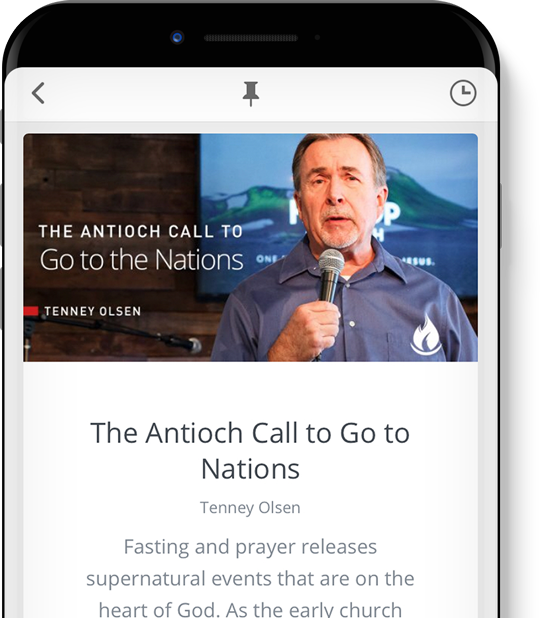“Be Anxious for Nothing”
Slaying Anxiety, Resting in Peace

This is a guest post from staff member Jonathan Nicholson. These guest posts are a part of a series of encouraging devotionals during this time of global disruption.
Everyone battles anxiety, but the Bible offers a clear strategy for victory. This article explores that strategy as it appears in Philippians 4:6-8.

“Where’s Paul?” I asked Luis. Luis hadn’t seen him. No one had since we’d returned from Barrio Nuevo, smeared with dirt and drenched in sweat, nearly an hour before. I had only been staying with Paul in the ministry center for about a week, but I already knew it wasn’t like him to just wander off. Luis began searching the village while I stayed home in case Paul turned up. Time passed. He didn’t. The sun began to set. Still no Paul.
It was July 17, 2012, a significant day for two reasons. First, it was the day we and a team of American high schoolers began construction on a small plot of dust and scrub on the outskirts of Barrio Nuevo. We spent the afternoon digging, carrying cement blocks, hauling wheel-less wheelbarrow loads of sand and cement, and setting up what would become an art piece in the center of a new park, a gift to the village.

Jesus is the Shelter in the Storm
Becoming rooted in the unchanging hope of Christ

This is a guest post from a long-time friend in our community, Jeremy Sundin. These guest posts are a part of a series of encouraging devotionals during this time of global disruption.
If you’re like most people in the world right now, you’re going through a time that tests your faith and tempts you to give into fear of the foreboding clouds on the horizon. And yet, hard times are not unique to our present times. Even the early Christians lived through incredibly tumultuous times. The Bible offers us a model of how to position our lives in times like these.
How to maximize your time with God

The times we spend with God are the most important moments of our lives. Reading the Word and praying are essential disciplines every Christian should attain to. It’s how we know God. Given the importance of this time—and how busy people’s schedule can be—we must seek to maximize our time with God.
Generally, whenever I want to spend time with God is when I am usually the most distracted. And tired. It almost never fails to happen: I sit in a comfy chair, open the Bible…and I’m out cold, like a Bible-reading narcolepsy.
But really, if the time we spend with God is the one of the primary ways to know God, why wouldn’t the enemy of our souls do all he can to distract, confuse, or disrupt this time of meeting? How can we practically fight to keep this time?
Does God love you out of obligation?
Or does God actually enjoy you?

Our relationship with God is founded on one primary truth: He loves us (1 John 4:19). Yet how come believers so often feel that He is displeased with them and only loves them because He is contractually obligated? I know that I’ve definitely felt that way. Is He mostly sad, mad, or disappointed? Or is He mostly happy with us?
“…He delivered me because He delighted in me.” Ps. 18:19 (emphasis added)
God loves unbelievers (John 3:16), yet He likes and enjoys believers (John 15:9). Jesus rejoices over us when we turn to Him in repentance (Lk. 15:4-7). His smile is seen as a believer embarks on the journey towards mature obedience and love. Our repentance elicits a compassionate response in Jesus’ heart (Lk. 15:18-22), even though we still have immature areas that need transformation.
Can you really be free from sin?
The positive role of repentance in overcoming sin in your life

If you’re reading this, it’s likely that you’re a sincere Christian who’s struggling with sin. Or maybe you just want to be sincere. But sin in your life has you feeling stuck and likely ashamed.
The pain you feel from sin can be crippling, keeping you from the life of freedom you want. Without God’s righteousness in your life, the Bible says you are dead in your sin (Rom. 6:23, Eph. 2:1).
This is exactly why God became a man (Jesus) to die in our place and take the punishment for our sins. He is the solution to our otherwise dead lives of sin.
“But God demonstrates his own love for us in this: While we were still sinners, Christ died for us.” Romans 5:8
Even after you become a believer, it is likely that you will struggle with sin at some point in your life. This is where repentance comes into play. Repentance is a reckoning with your life, a reset, and a resolve to live your life God’s way. His lifestyle of righteousness according to what the Bible says.
Do Muslims and Christians Worship the Same God?

In this day, there seems to be a lot of confusion about whether or not Christians and Muslims worship the same God. There are core differences between Islam and Christianity which make the answer no, we do not. Let’s look first at a few basic Christian beliefs and determine why.
1) Christians believe in the Trinity, a Triune God. Father, Son and Holy Spirit.
“For in Christ all the fullness of the Deity dwells in bodily form” (Colossians 2:9, emphasis mine)
“For to us a child is born, to us a son is given, and the government will be on his shoulders. And he will be called Wonderful Counselor, Mighty God, Everlasting Father, Prince of Peace.” (Isaiah 9:6)
“And the Word became flesh and dwelt among us, and we beheld His glory, the glory as of the only begotten of the Father, full of grace and truth.” (John 1:14, emphasis mine)
2) Christians believe that the Uncreated God, Yahweh, revealed Himself in flesh in the person of Jesus Christ.
Jesus also rightfully claimed to be God. “‘Very truly I tell you,” Jesus answered, “before Abraham was born, I am!’” (John 8:58)
“I and the Father are one.” (John 10:30)
“But to the Son He says: “Your throne, O God, is forever and ever; A scepter of righteousness is the scepter of Your kingdom.” (Hebrews 1:8)

